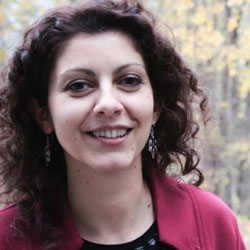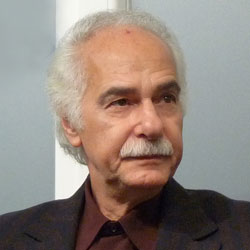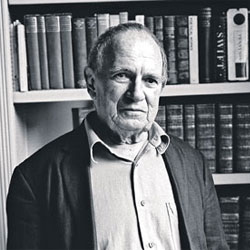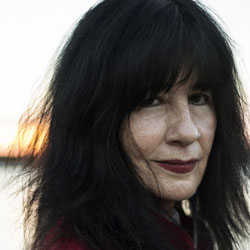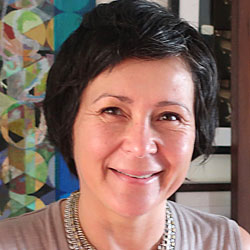21
When no one is waiting for us
any longer, there’s
death,
so faithful.
22
Broken souls are not anonymous,
no more than the geometry
reserved for my naked feet.
23
There are moments when
the past ceases to be a form
of the present.
Rain and tears
Look alike.
24
Syria has always been the mother
of chaos. A land parallel to
all the others. In the epiphany
of a sun to come,
breathless.
25
The olive tree in Delphi,
next to the temple of Sikiyon,
remembers the oracle
saying that
somewhere in the plain linking
the Red Sea to the Dead Sea,
music will
displace the sky.
26
Ruins are relics.
The lineage being of little importance, we’re related to them.
Notes on the Poem
Our Poem of the Week features our first Translation Talks guest, Sarah Riggs, winner of the 2020 Griffin Poetry Prize for Time (Nightboat Books), translated from the French written by Etel Adnan. Of the collection the judges said: “‘I say that I’m not afraid/of dying because I haven’t/ yet had the experience/ of death’ writes Etel Adnan in the opening poem to Time. What is astonishing here is how she manages to give weariness its own relentless energy. We are pulled quickly through this collection – each poem, only a breath, a small measure of the time that Adnan is counting. Every breath is considered, measured, observant – perceiving even ‘a crack in the/ texture of the day.’ If Adnan is correct and ‘writing comes from a dialogue/ with time’ then this is a conversation the world should be leaning into, listening to a writer who has earned every right to be listened to.” Don’t miss Sarah Riggs’ conversation with Khaled Mattawa on Thursday, January 27th at 7pm ET. Translation Talks is a new series of conversations about translation and poetry where shortlisted and winning authors are invited to discuss their craft in company of other poets and translators. Register here.



